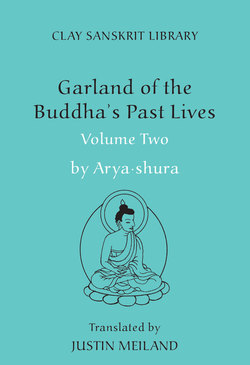Читать книгу Garland of the Buddha's Past Lives (Volume 2) - Aryashura - Страница 17
На сайте Литреса книга снята с продажи.
Оглавлениеrather than any virtue displayed by the Bodhi·sattva.6 Accordingly, when the hunter decides to release the geese, he pinpoints Sumukha’s virtue as the main factor influencing his actions:
The virtue you have displayed here
in giving your life for your master
would be miraculous even
among humans or gods!
Out of reverence
I will release your king.
For who could wrong him
who is dearer to you than life? (22.95 [52]—96 [53])
In a similar manner to the love shown between the Bodhi·sattva and his wife in ‘The Birth-Story of Vishvan·tara’ (9), the inseparable companionship between the Bodhi·sattva and his general is again stressed:
The two worked as one in upholding
the body of bliss for the flock of geese,
just as two wings work as one in upholding
the body of a bird flying in the sky. (22.6 [1])
However, while Sumukha receives prominent attention for his own individual morality, it is significant that the virtue for which he is praised is devotion, an attitude that necessarily involves a strong bond of attachment to an object of loyalty, in this case the Bodhi·sattva. The value of Sumukha’s moral conduct is therefore never entirely autonomous, however virtuous it is shown to be, but is always dependent on his relationship with the Bodhi·sattva. This is ________
